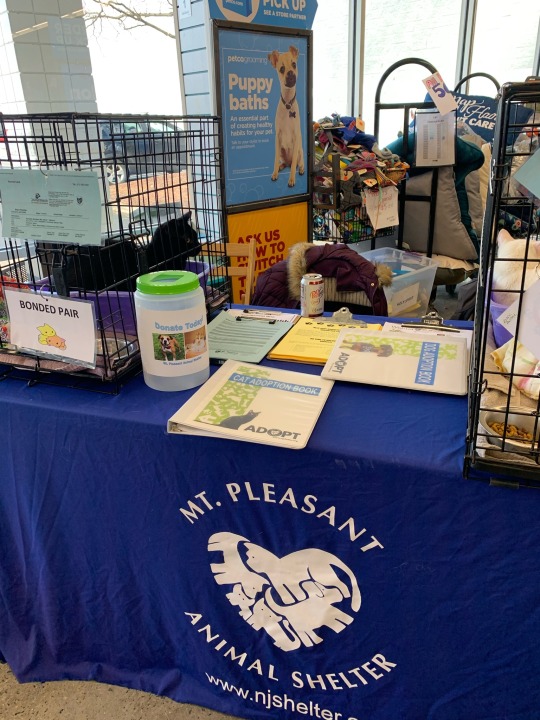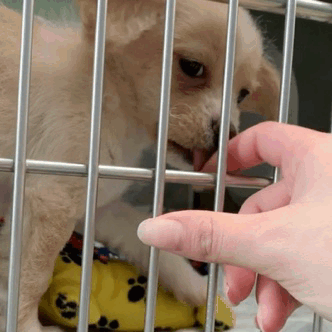Text
Adopting vs Shopping--Which is Better?
So, you’ve finally decided you want a dog. First of all, congratulations! It’s undeniable that a furry companion is great for when your home begins to feel just a little too empty. Although people have pets for plenty of different reasons, it is important to realize how much care and thought must go into both adopting and taking care of your new companion--including where you decide to get your new dog from. Now, allow me to walk you through the importance of adopting dogs from shelters over receiving them from private backyard breeders or pet stores.
Private and public shelters are the two primary forms shelters take. Private shelters are typically limited in space and tend to avoid euthanasia (the act or practice of permitting the death of hopelessly sick domestic animals in a relatively painless way for reasons of mercy), although they still may euthanize animals if they are severely ill or have severe behavioral issues that deem them “unfit” for adoption. Public animal shelters deal primarily with stray animals within their respective communities and animals that have been impacted by state cruelty laws, and are shelters that euthanize for space if an animal has been available for adoption for a prolonged period of time but has not been adopted or properly claimed by an owner. Despite many people being actively against the act of euthanizing, don’t forget to consider that many shelters go through an extensive process of behavioral readjustment, psychological evaluations, and health evaluations before even considering euthanasia. Also, as someone who volunteers at a local shelter, I can assure you that it is always saddening and hard to have to take away an animal’s life for any reason. Ultimately, running a shelter can be extremely financially straining, which means hard decisions must be made.
Despite what many people assume, most animal shelters and rescue organizations do not receive financial assistance from the government. The United States Department of Agriculture (USDA) does not funnel in tax-payer money to make sure the doors of shelters stay open and that food-bowls stay full--they simply enforce animal welfare laws and provide funding for animal control services in larger cities and towns. In order to operate, shelters rely heavily on donations, either in money or in resources, and the help of volunteers.
Private breeders are a very different story. Although there are people who receive animals from private breeders on a regular basis, and there is nothing inherently wrong about wanting to provide any animal with a new family and a loving home, a lot of the problems with private breeders are in relation to the way in which they operate their businesses and contribute to the negative stigma surrounding shelter animals.
The first major concern about private breeding is related to what are known as puppy mills. Most puppy mills and backyard breeders breed puppies in order to profit from the misconception that dogs that are privately bred are “better” and have better temperaments or traits than dogs in shelters. Many of these dogs are subject to harsh conditions, mental and physical abuse, lack of enrichment, inadequate healthcare, and are also separated from their mothers--also known as “breeding bitches”--at only a few weeks old, intending to maximize profit as much as possible. Private breeders are not always educated on how to care for dogs, nor do they always possess the correct medical equipment or proper veterinary training to do so, which leaves a lot of room for dogs to be born with serious short (but fatal) or long-term health complications that can make them very expensive to care for.
What about mills that are licensed by the USDA? Or puppy mills that regularly sell to pet-stores?
I have news for you, honey.
Although there are puppy mills licensed by the USDA, the standards the USDA has in place for commercial breeders are very, very low. It’s pretty rare for the USDA to reprimand private breeders for health and welfare violations, and inspections are done usually about once every couple of years. This means that there are currently thousands of private puppy mill owners profiting off of and benefitting from the USDA’s lax nature towards ensuring that commercial breeders are providing safe, sanitary spaces for animals to live until they are either adopted or sold to pet stores.
Yes--pet stores buy from private breeders too. A plethora of animals that are sold in pet stores come from private breeders, including breeders known to be repeat violators of animal welfare laws.
Overall, at face value, you believe you are participating in something important and ethical--providing a new living situation for a sweet animal in need of it. It is not your fault that there are people who take advantage of animals in order to profit, but you do possess the ability to contribute to taking away the power of people who own puppy mills. This, of course, starts with you considering adopting primarily from animal shelters, which house dogs of different breeds, sizes, traits, and temperaments. Most shelters utilize a system that ensures that you are matched with an animal that will fit your personality and home environment, which makes it so that both you and your new dog will remain happy and healthy. According to the ASPCA, around 3.3 million dogs are brought into shelters in America every year--I can assure you that one of them is meant for you.
Remember to stay safe, healthy, and kind during this pandemic. Also, consider fostering an animal from your local shelter or SPCA, as it is currently growing difficult for shelters and rescues to remain open.
SOURCES
https://www.thepuppymillproject.org/about-puppy-mills/
https://www.humanesociety.org/sites/default/files/docs/pet-stores-puppy-mills-factsheet.pdf
https://www.animalrescueprofessionals.org/myth-vs-fact/animal-shelters-funded-by-the-government/
https://positively.com/animal-advocacy/puppy-mills/
https://www.aspca.org/animal-homelessness/shelter-intake-and-surrender/pet-statistics
5 notes
·
View notes
Text
hi!
my name’s tahliyah, welcome to my little corner of the internet. i want to use this blog to not only document my experiences as a college student on the pre-veterinary track, but to touch upon the aspects of my identity that impact/are intertwined with my experiences. i am a proud, jersey-born, LGBT, afro-latina who just so happens to have a deep-rooted love for animals and wants to spend a good part of her life helping to heal them. essentially, i’m a human being with a passion, and i want to share this passion. i will not pretend to be a know-it-all, because i am only learning as i go—and i will teach you what i’m learning as i learn it. i want to share my victories, big and small, but i also want to share my mistakes and setbacks with you (i am very much human, i won’t even try to pretend i’m better than anyone in absolutely any way). all in all, i have a million things to share, and i’ll try my best to do just that! (-:







4 notes
·
View notes